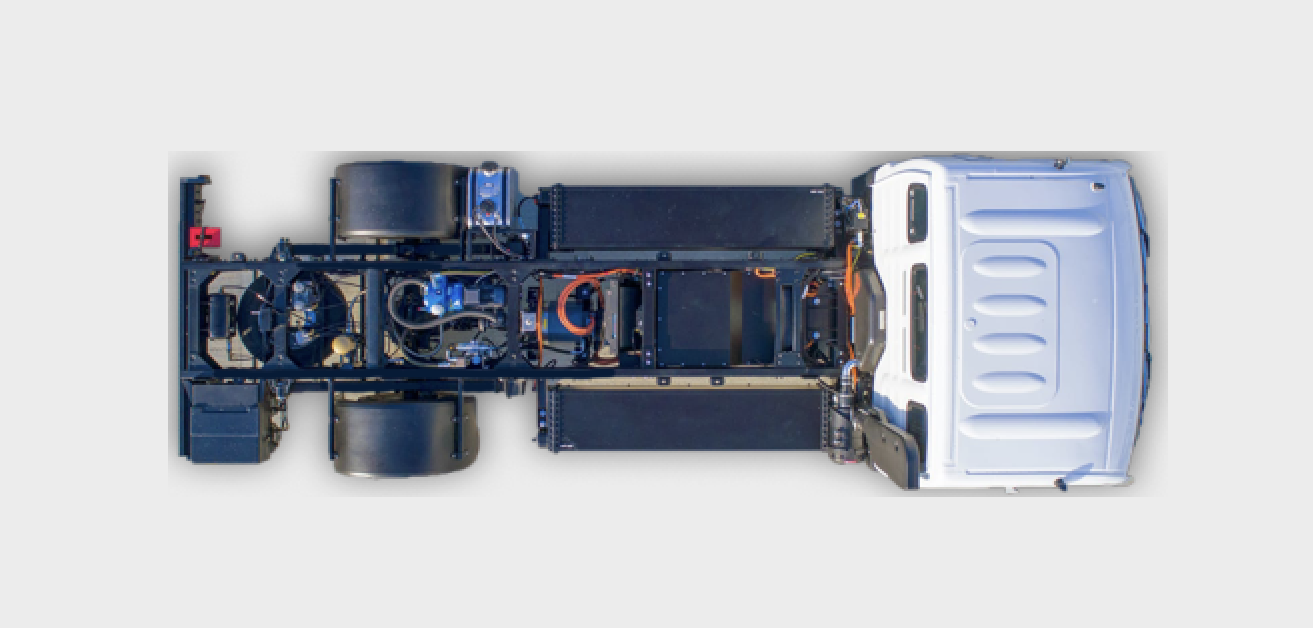
The company is today (11 January) celebrating the achievement of European Community Whole Vehicle Type Approval (ECWVTA) for its 7.5-tonne battery-electric truck. In doing so, regulators have deemed the model as compliant with relevant safety and environmental standards. This is a prerequisite to selling any new vehicle models within the European Union (EU).
Tevva states that this model has a range of up to 180 kilometres (110 miles) per charge and that it can charge to 90% of this maximum range within five hours using existing charging technologies. It is marketed as a solution for urban routes and last-mile deliveries for international routes. The model is manufactured at Tevva’s factory in Tilbury, Essex, with the brand eyeing new manufacturing locations elsewhere in Europe for the future.
The first Tevva 7.5T Electric Trucks were delivered to commercial customers in the second half of 2022. The first one off the assembly line was purchased by Kinaxia Logistics in September 2022, for use on a trial basis in the first instance.
With the confirmation of the ECWVTA, Tevva is anticipating sales of up to 1,000 electric trucks this year, predominantly to the UK market. Customers on the brand’s books include Travis Perkins, Expect Distribution and Royal Mail. Royal Mail is notably working towards a net-zero value chain by 2040, with plans to operate more than 5,500 electric vehicles (EVs) and increase charging infrastructure investment by spring this year.
Tevva’s founder and chief executive Asher Bennett has called the ECWVTA “the most important landmark [the company] has reached to date”. No other pure electric truck of this size has received the Approval yet.

The news will be welcome amid the ongoing uncertainty around EV battery manufacturing in the UK. Britishvolt this week wrote to existing investors confirming that it is in talks to sell a majority stake, in order to safeguard a sustainable financial future for the development of its Gigafactory in Blyth.
In the coming months, Tevva is set to deliver its first 7.5T hydrogen-electric trucks to customers, following the first public launch of the model at the Road Transport Expo in Warwickshire last summer. Combining a hydrogen fuel cell system with a battery-electric design extends the vehicle range; this model touts a range of up to 435km (270 miles). Tevva is then exploring heavier hydrogen trucks of 12 tonnes and 19 tonnes in the longer term.
Bennett said: “We are on a mission to make sustainable trucks accessible at scale and believe our technology will empower the transport sector and the governments of Europe to meet their net-zero goals. By embracing both hydrogen and electric fuel sources, we can rethink the energy mix in transport, reduce strain on our electricity grid and accelerate electric truck adoption.”
Trucks in the clean transition
The UK is set to end the sale of new diesel and petrol heavy goods vehicles (HGVs) weighing 3.5 tonnes to 26 tonnes from 2034. A later deadline of 2040 has been set for heavier models. These targets, set under the 2021 Transport Decarbonisation Plan, are in support of the UK’s legally binding 2050 net-zero climate goal.
EU lawmakers are currently being pushed by large fleet operators to set similar targets. More than 40 corporate members of the Climate Group’s EV100 coalition signed an open letter to EU lawmakers last month, asking for emissions targets for HGVs and a deadline on ending the sale of all new trucks which are not zero-emissions. Supporters of the letter included PepsiCo, Unilever and Henkel.
Source edie


